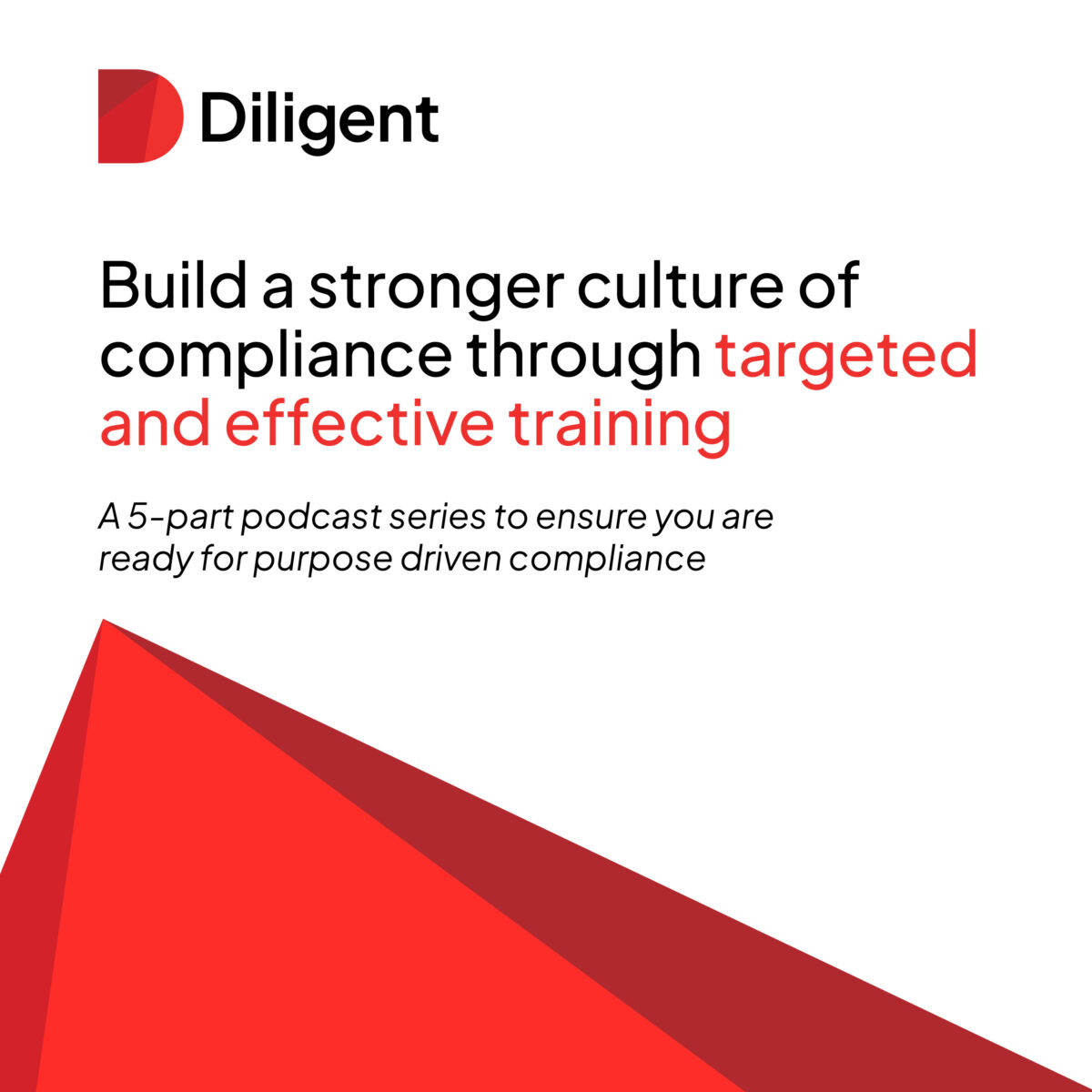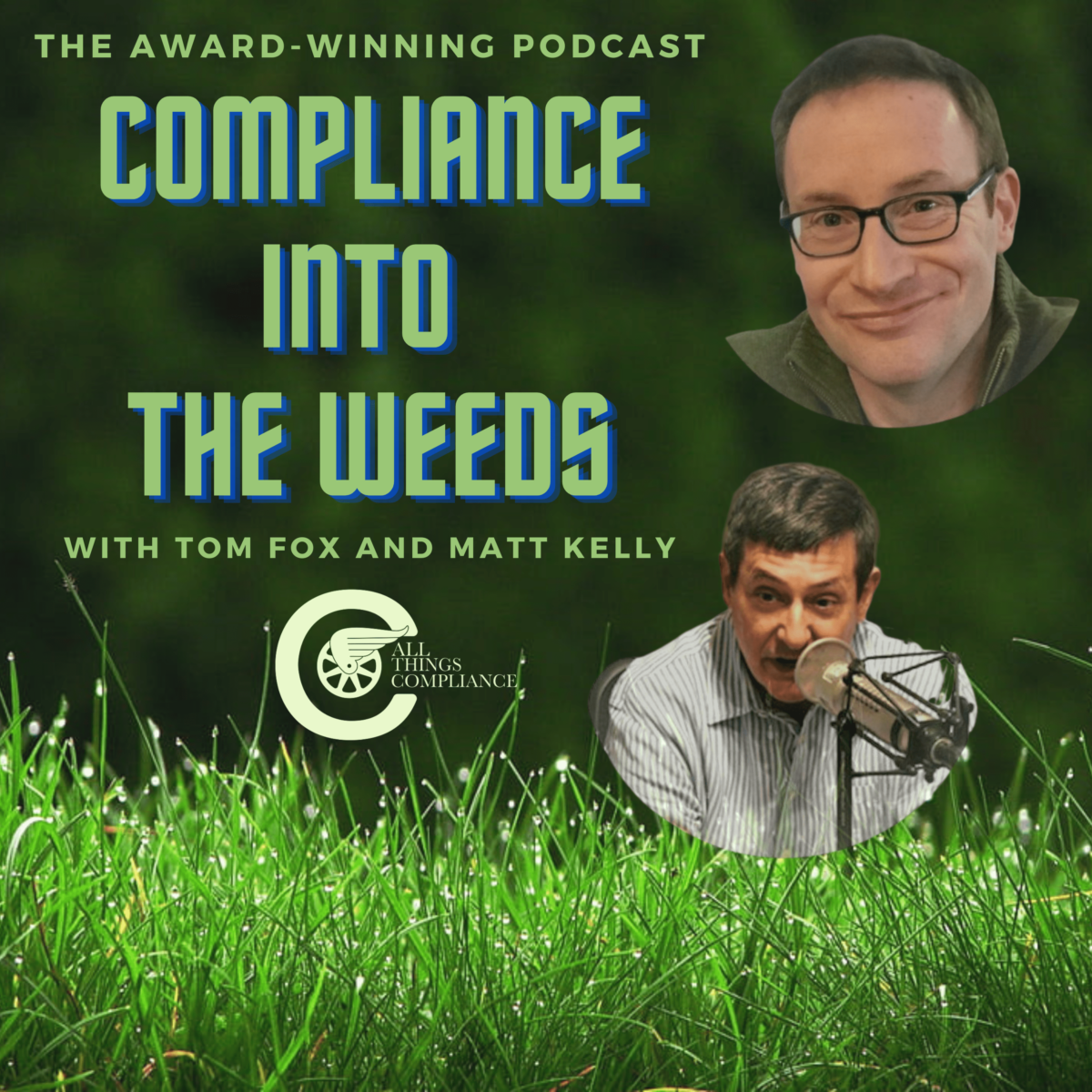Welcome to a special 5 part podcast series on building a stronger culture of compliance through targeted and effective training, sponsored by Diligent. Over this series, I will visit with Kunal Agrawal, Director of Customer Success at Diligent; Kevin McCoy, Customer Success Manager at Diligent; Jessica Czeczuga, Director, Compliance and Ethics at Diligent; Andrew Rincón, Client Director at Diligent; and David Greenberg, former CEO and Special Advisor at LRN and Director at International Seaways. Over this series, we will consider the importance of ongoing communications, the value of targeted training, training third parties, and the role of the Board of Directors. In this concluding Part 5, we consider the role of the Board of Directors in a compliance program with David Greenberg.
In this episode, Greenberg discusses the board’s legal obligations, emphasizing their duty to exercise reasonable oversight over potential misconduct and failures of compliance with law and policy. The podcast also delves into the importance of integrating compliance programs into a company’s overall strategy and developing strong relationships with senior management, such as the chief legal officer or chief compliance officer. Listeners will learn the importance of finding the right committee to oversee compliance obligations and utilizing outside experts for insight and guidance. This conversation is essential for board members and executives who want to ensure accountability, initiate change, and drive organizational success. Don’t miss out on this informative and engaging episode of “The Role of the Board” episode.
Key Highlights:
- Legal obligations and oversight for corporate boards
- Importance of integrating compliance into the company culture
- Board Oversight and Relationship Building with CCO
- The Significance of Outside Perspectives for Boards
Notable Quotes:
“There is a strong obligation on boards to exercise reasonable oversight over all potential misconduct and failures of compliance law and policy should a reasonable board has known and taken steps…should that body have known and should it have done more than it did.”
“Boards principally should be asking tough questions and following up on those questions.”
“Anything that is not integrated into the real levers and machinery of the business will not be successful.”
“That chief compliance officer who knows the head of the audit committee or compliance committee or governance committee is much more able and comfortable picking up the phone and saying to the chair, Houston, we’ve got a problem.”
For more information go to Diligent.com











